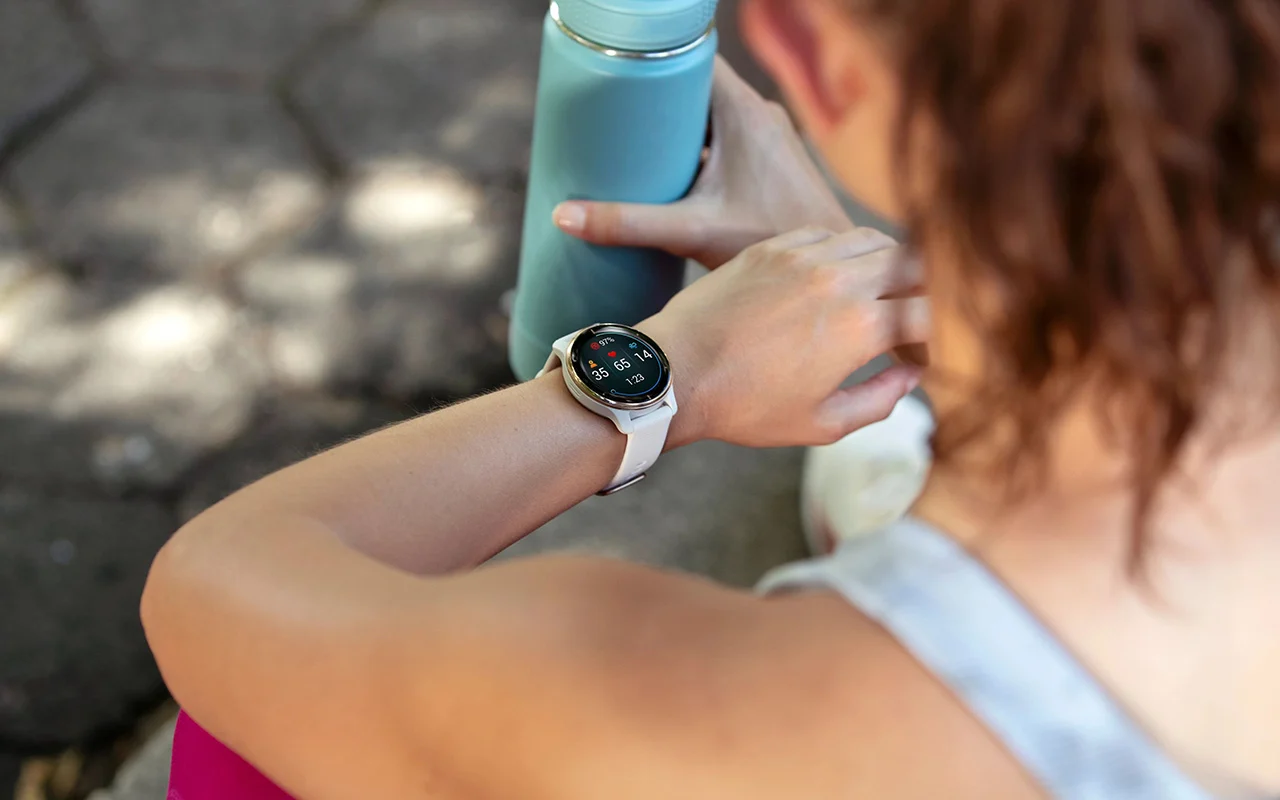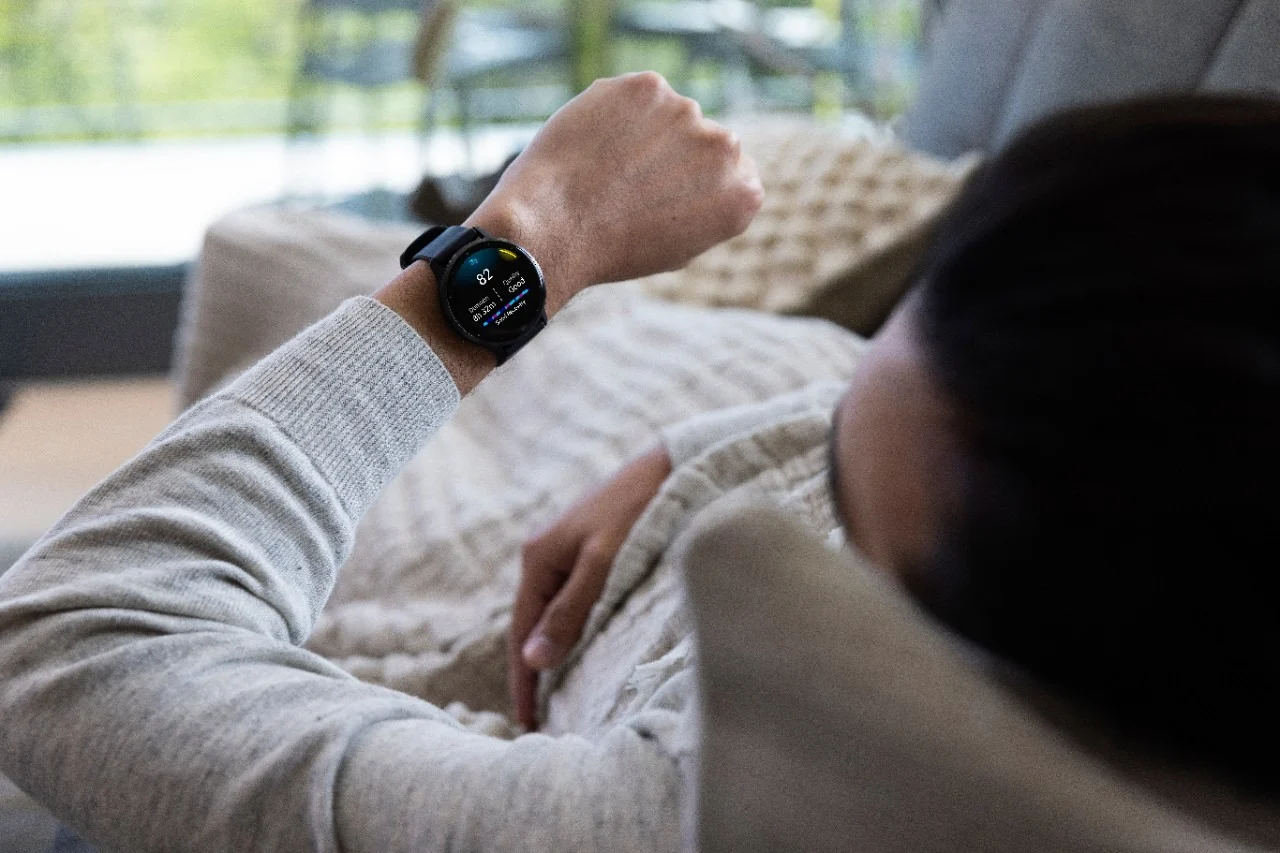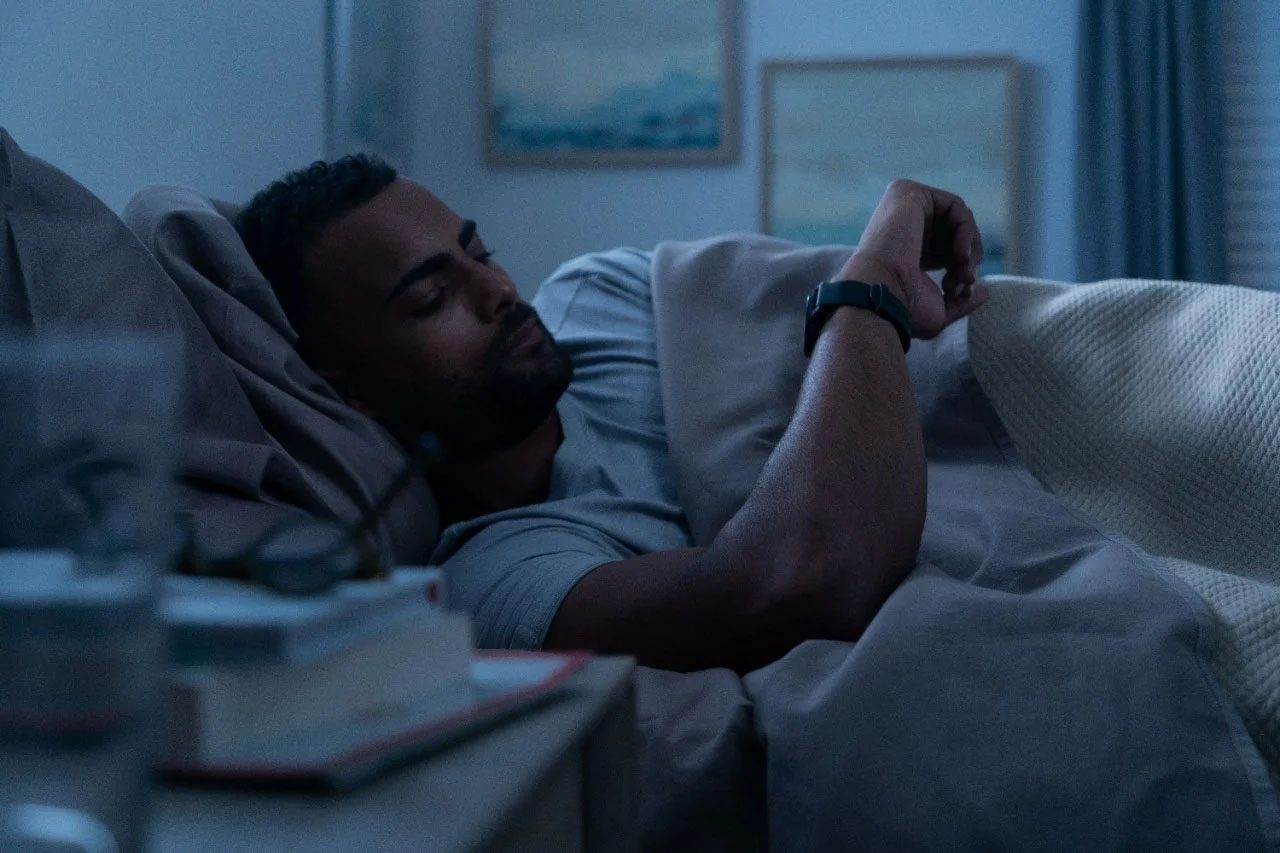
Garmin Sleep Score and Sleep Insights
Healthy lifestyles are built on the foundation of good sleep. A good night’s sleep prepares you for success with mental tasks and physical challenges alike. Sleep is also important for your immune system, helping you avoid getting sick and recover faster when you do. The list of benefits associated with good sleep is practically endless.
And yet it is estimated that more than a third of adults regularly get less than enough sleep each night. [1] Many are concerned that poor sleep trends are the rise. A 2015 study indicated that the number of Americans who self-reported sleeping less than 6 hours per night nearly doubled between 1985 and 2012 from 38.6 million to 70.1 million people. [2]
Given the importance of sleep and how easy it is to get off track, one thing is certain — understanding more about your own relationship with sleep is an advantage. Keeping tabs on your sleep helps you stay accountable to yourself. You can spot opportunities to improve before poor sleep becomes a habit.
Advanced Sleep Tracking with Sleep Score
Sleep score and accompanying insights are new lifestyle-oriented additions to compatible Garmin watches with advanced sleep tracking. This includes the Venu® 2 series, the fēnix® 6 and fēnix® 6 solar series, the Descent™ MK2 series, the tactix® Delta series, Enduro™, Forerunner® 745, the Forerunner® 945 series and the MARQ® series of tool watches.
Advanced sleep tracking is designed to recognize when you fall asleep, when you wake up and sleep stages as they occur during the night. This includes light, deep and REM sleep stages.
Sleep and sleep stages are identified using a combination of heart rate, heart rate variability, respiration rate, body movement and other key inputs. Supported devices enable you to add body movement, respiration rate and oxygen saturation overlays to your sleep charts in the Garmin Connect™ app for a more complete picture of your night.
Your sleep score is a number (0-100) that summarizes the underlying data to reveal how you slept. A high sleep score means you are well-prepared for the challenges of the day ahead. You also get instant insight into significant factors that influenced your score.
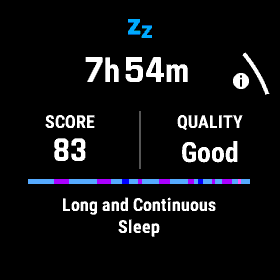
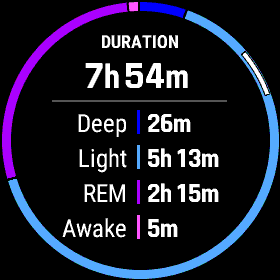
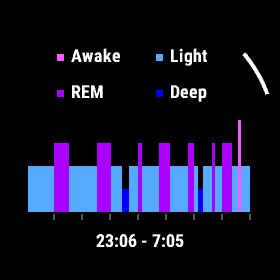
How Is Garmin Sleep Score Calculated?
Sleep is a complex and multidimensional phenomenon. And while science hasn’t fully explained the mysteries of sleep, there are many things that we do know. For example, there isn’t just one thing that defines good sleep, making it essential to consider sleep from different perspectives simultaneously.
Your nightly sleep score is calculated based on a blend of how long you slept, how well you slept and evidence of recovery activity occurring in your autonomic nervous system derived from heart rate variability data.
Sleep quantity and sleep quality are assessed by comparing your recorded sleep to age-based standards agreed upon by sleep experts.
Getting more sleep can help compensate for poor sleep quality. The opposite is true as well. If you are a super sleeper with excellent recovery levels and regular sleep cycles, you can probably get by on less sleep. On the other hand, if your sleep is frequently interrupted or displays signs of poor recovery, then you may need more than 9 hours of sleep to achieve a similar benefit.
Sleep Duration
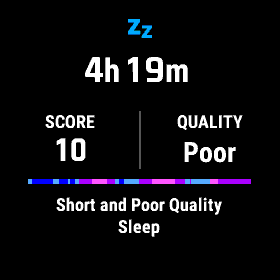
Experts, like those at the National Sleep Foundation, recommend healthy adults get between seven and nine hours of sleep each night. Some people naturally need more sleep, others need less. And your own nightly sleep needs vary according to the demands and time life. [3] [4]
There is a line, however, below which good sleep quality appears to be unable to compensate for less time spent sleeping. Studies associate regularly getting less than seven hours of sleep each night with a variety of poor health outcomes. [3] Weight gain, obesity, high blood pressure, heart disease and stroke are all specific health risks associated with regularly getting less than seven hours of sleep each night. [5] [6]
Getting less sleep than you need is also associated with an increase in mental mistakes, home and workplace accidents, and training injuries.
Sleep Quality
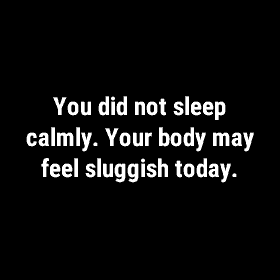
Sleep quality has a lot to do with how fresh you feel when you wake up. A whole range of elements is considered when determining how sleep quality contributed to your sleep score. This includes how many times you woke up during the night, when awakenings occurred, and how much time you spent awake after going to bed and before getting up in the morning. [7]
As you can imagine, continuity is an important contributor to sleep quality. When your sleep is interrupted it disrupts the formation of sleep cycles that support the restorative processes that define good sleep. Sleep cycles are orderly transitions between sleep stages (light, deep and REM) that ideally repeat several times each night.
Each sleep stage is associated to varying degrees with specific restorative benefits. REM sleep, for example, is understood to support cognitive functions and memory. Deep sleep is associated with energy restoration, cell repair and regeneration, and maintaining a healthy immune system. A portion of your sleep score is affected by how much time you spend in each sleep stage during the night.
Excessive tossing and turning during the night, even if you don’t wake up or remember waking up, can also reduce your sleep quality.
Overnight Recovery
The third major contributor to your sleep score is a personal recovery metric. This element is derived from the same science that powers the all-day stress tracking and Body Battery™ features on your Garmin watch. This means changes in how your heart beats from one moment to the next are analyzed to reveal stress and recovery states occurring in your autonomic nervous system (ANS).
The degree of activity within the parasympathetic (rest-and-digest) branch of your ANS relative to the sympathetic (fight-or-flight) branch is interpreted to reveal the presence and intensity of recovery states as they occur in your body.
The result provides insight into your sleep from the perspective of restorative power. Strenuous activity late in the evening and alcohol consumption commonly reduce overnight recovery. Overnight recovery levels are also usually lower when your immune system is actively fighting an infection.
Insight for Better Sleep
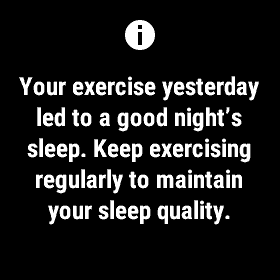
Our personal interest in sleep tracking usually comes from a desire to sleep better. Unless you are struggling with insomnia, getting more sleep is mostly a question of time management and prioritization. The ability to effortlessly track your sleep and see trends over time is a huge game changer for many when it comes to recognizing the need to prioritize sleep.
Improving sleep quality, on the other hand, is more about lifestyle and activity choices made during the day. Knowing how your decisions during the day will affect your sleep at night unlocks the possibility of better, more informed decisions and lifestyle choices.
Compatible watches will occasionally offer personalized insight to help you understand your sleep better and how it affects performance during the day. You will also see tips to sleep better based on real-world data about your own stress, recovery, and physical activity patterns recorded during the day and night.
References
- Y. Liu, A. Wheaton, D. Chapman, T. Cunningham, H. Lu and J. Croft, “Prevalence of Healthy Sleep Duration among Adults — United States, 2014,” MMWR Morb Mortal Wkly Rep, vol. 65, p. 137–141, 2016.
- E. Ford, T. Cunningham and J. Croft, “Trends in Self-Reported Sleep Duration among US Adults from 1985 to 2012,” Sleep, vol. 38, no. (5), pp. 829-832, 2015.
- National Sleep Foundation, “National Sleep Foundation’s updated sleep duration recommendations: final report,” Sleep Health, vol. Epub 2015 Oct 31, pp. 233-243, 2015.
- N. F. Watson, M. S. Badr, G. Belenky, D. L. Bliwise, O. M. Buxton, D. Buysse, D. F. Dinges, J. Gangwisch, M. A. Grandner, C. Kushida, R. K. Malhotra, J. L. Martin and S. Patel, “Joint consensus statement of the American Academy of Sleep Medicine and Sleep Research Society on the recommended amount of sleep for a healthy adult: methodology and discussion,” Sleep, vol. 38, no. 8, pp. 1161-1183, 2015.
- M. A. Grandner, S. Chakravorty, M. L. Perlis, L. Oliver and I. Gurubhagavatula, “Habitual sleep duration associated with self-reported and objectively determined cardiometabolic risk factors,” Sleep Medicine, vol. 15, no. 1, pp. 42-50, 2014.
- Y. Liu, A. G. Wheaton, D. P. Chapman ja J. B. Croft, ”Sleep duration and chronic diseases among US adults age 45 years and older: evidence from the 2010 Behavioral Risk Factor Surveillance System,” Sleep, osa/vuosik. 36, nro 10, pp. 1421-1427, 2013.
- National Sleep Foundation, “National Sleep Foundation’s sleep quality recommendations: first report,” Sleep Health, vol. 3, no. 1, pp. 6-19, 2016.


